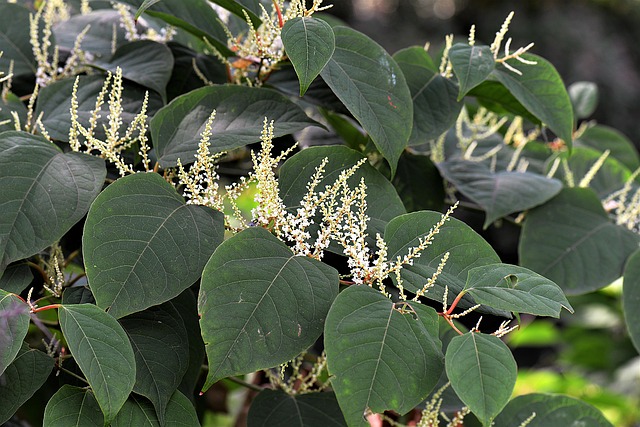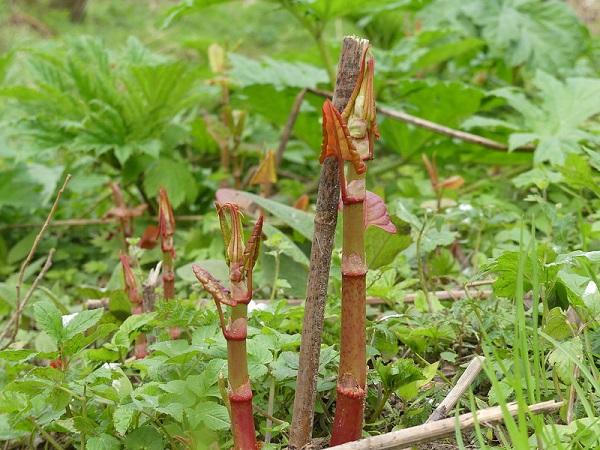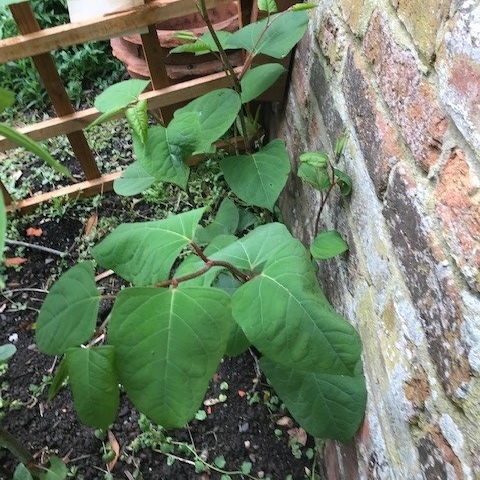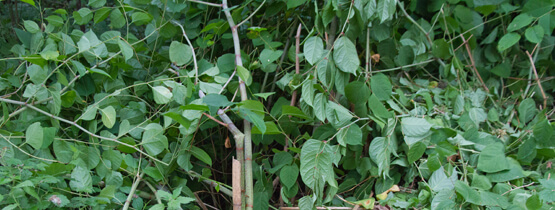
If you have a Japanese knotweed infestation on your property, you should be extremely careful. If the infestation spreads from your land onto neighbouring land, you can be sued.
A quick internet search will reveal a number of legal cases where people have claimed thousands of pounds after finding Japanese knotweed that had encroached on their land. To avoid a court case, you should treat Japanese knotweed on your property before it has a chance to encroach onto neighbouring land - otherwise, you'll be left to face the consequences.
More...

Japanese knotweed is a bothersome invasive species and, although not poisonous, it can still do plenty of damage to buildings and the natural habitats it overtakes.
More and more people are being made aware of its presence and its dangers, and how it can affect your property. As such, we’ve now reached a point where almost half of potential buyers wouldn’t buy a house with Japanese knotweed.
More...

Japanese knotweed (Fallopia japonica) is a herbaceous perennial. What this means is that, at the end of every autumn, the plant dies down and its roots lie dormant throughout the winter. It regrows its shoots in spring and reaches peak growth in the summer months, when it can grow by as much as 10 centimetres per day!
This cycle means that knotweed looks completely different at different times of year, sometimes making it tricky to identify. It's March at time of writing, which means we're approaching that time of year when we can expect Japanese knotweed shoots to start popping up.
More...
Japanese knotweed typically sprouts in April or May - yet in recent years, the plant has been visible in the UK from March or even February.

When does Japanese knotweed typically grow?
Japanese knotweed is what’s known as a 'herbaceous perennial'. This means that the plant dies down to the ground by the end of every autumn, but its roots survive underground during the winter season to send up new plant growth in spring the following year.
More...

The UK has been through a lot recently when it comes to weather with storms Dudley and Eunice, and wouldn’t the cherry on top of the blustery cake be that, as well as flooding, the storms have brought Japanese Knotweed to your house?
Hopefully that isn’t the case, but poor weather like we’ve been having in the UK recently can actually encourage the spread of Japanese knotweed. Interested in finding out how? Keep reading!
More...
